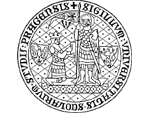Colloquium Prague ν19
→
Europe/Prague
J. Heyrovsky Institute of Physical Chemistry
J. Heyrovsky Institute of Physical Chemistry
Dolejškova 2155/3, 182 23 Prague 8, Czech Republic
Description
Colloquium Towards CP violation in neutrino Physics
The aim of the Colloquium is to present a status and plans for CP violation measurement in neutrino experiments. It plans to provide an overview of recent experimental results, theoretical predictions, experiments under construction and planned experiments to measure CP violation in lepton sector.
It consists of invited talks.
 |
 |
 |
 |
||
The organizing committee:
David Wark, Oxford University/Rutherford Appleton Laboratory
Debbie Loader, Rutherford Appleton Laboratory
Rupert Leitner, Charles University, Prague
Vit Vorobel, Charles University, Prague
Milos Lokajicek, Institute of Physics AS CR, Prague
Nina Tumova, Institute of Physics AS CR, Prague

The event is supported by programme CZ.02.1.01/0.0/0.0/16_013/0001787, MEYS Czech Republic LM2015068 |
Secretary: Nina Tumova Emergency phone:
Participants